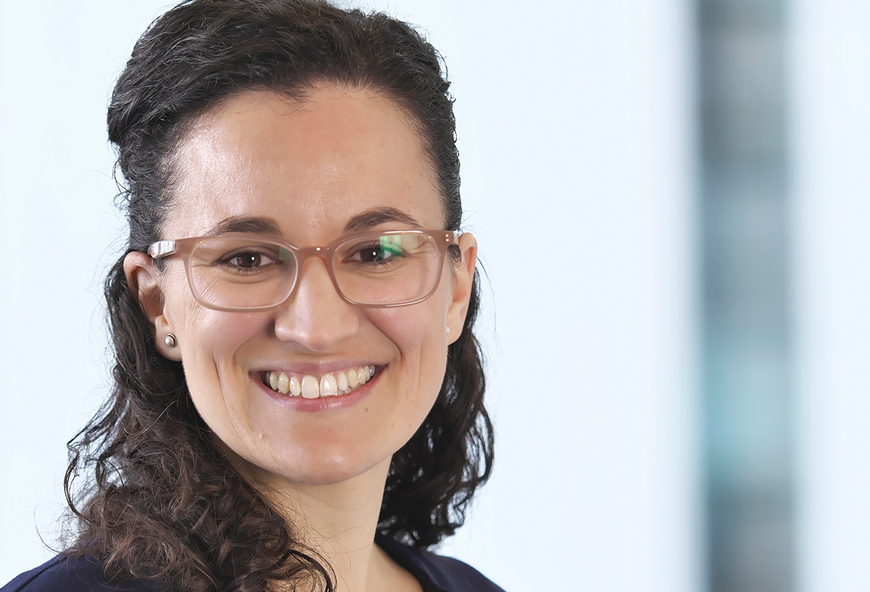-
The University
- Welcome
- Who we are
- Media & PR
- Studying
-
Research
- Profile
- Infrastructure
- Cooperations
- Services
-
Career
- Med Uni Graz as an Employer
- Educational Opportunities
- Work Environment
- Job openings
-
Diagnostics
- Patients
- Referring physicians
-
Health Topics
- Health Infrastructure
Biobanking
Given the extensive international growth of biobanks, it is necessary to provide training for experts in the field of biobanking and its related disciplines. This university course is designed to address this development and provide expertise on the structure, management, equipment and challenges of biobanking, as well as networking opportunities.
The course is held in English The main method of instruction is e-learning.

Overview
Length: 5 semesters, part-time
ECTS: 120
Degree: Master of Science (Continuing Education) – MSc (CE)
Course fee: € 14.900,-
Qualification profile and learning outcomes
The postgraduate course provides the knowledge, skills and competencies required for a job in the multidisciplinary field of biobanking.
Graduates are able to:
- establish and implement a biobank nationally and internationally,
- apply knowledge in relation to the organisation, implement quality and risk management and represent a biobank,
- apply knowledge to implement the necessary infrastructure (incl. IT) and budget preparation,
- implement knowledge on sustainable management of a biobank,
- implement knowledge on sample management and ELSI aspects of a biobank,
- apply knowledge in the fields of epidemiology, biostatistics and selected research areas,
- identify different international challenges in the field of biobanking in order to be able to take action through sustainable operation and networking of structures,
- apply theoretical knowledge and practical skills related to team management and scientific project management specifically adapted to the multi-faceted and multi-disciplinary challenges in biobanks.
Course fee
€ 14.900,-
Demand and relevance
Biological sample requests for medical research will continue to increase in the future. This means that the demands on the quality of the biobank samples will also increase due to the constantly growing range of methods for different analyses and applications. Expertise in these analyses and applications is central to the further development of biobank processes so that the quality of biobank resources can keep pace with novel methods for bioanalytics. Meeting these high demands in the training of experts in the field of biobanking requires well-structured postgraduate education and training.
The following occupational fields may be of interest to graduates:
- Biobanks (national and international)
- Medical research
- Basic research
- Analysis centers
- Pharmaceutical industry
- Diagnostic companies
Course directors
- Berthold Huppertz (Scientific and Organizational Leader)
- Karine Sargsyan (Vice Scientific Leader)
- Gabriele Hartl (Vice Organizational Leader)
Target group
The university course is designed for graduates of a bachelor's degree programme for medical-technical personnel or from natural science fields (e.g. biology, molecular biology, biotechnology, etc.) or of a completed degree programme in medicine or pharmacy who are particularly interested in the field of biobanking and would like to specialise and continue their education in this area.
Admission requirements
Degree
- of a subject-related degree programme (at least Bachelor's level and with at least 180 ECTS credits), e.g. for medical-technical personnel or from natural science fields, e.g. biology, molecular biology, biotechnology or health sciences, IT etc. or
- of the diploma programme in human medicine or pharmacy or of a different study programme of at least the same level of higher education at a recognised national or international post-secondary educational institution,
and
- a minimum of 2 years' relevant professional experience respectively
It is assumed that students are able to study English language materials and participate in lessons conducted in English.
Structure
The postgraduate course
- is part-time
- consists of 5 semesters
- is divided into 16 modules
- includes a master's thesis and defense
Course content
- Introduction and Basic Knowledge Biobanking
- Ethics and Law
- Collection and Management of Samples
- Risk Management and Biobanking
- Biobanking IT
- Sustainability, Budgeting and Business Planning
- Epidemiology
- Quality Management and Quality Control
- Management and Communication
- Strategy and Development
- Research Methods I
- Reserach Methods II
- Designing and Implementation of Clinical Studies
- International Biobanking
- Managing Multidisciplinary Teams
- Master's thesis
General Information to course content and lectures
Due to an amendment to the University Law in Austria the curriculum of MSc Biobanking was adapted – it was supplemented by some further modules "International Biobanking" and “Managing Multidisciplinary Teams”. The modules “Research Methods II” and “Designing and Implementation of Clinical Studies” are no longer optional modules - both modules are fixed parts of the curriculum. Especially in the new modules, some renowned international experts in the field of biobanking willbe invited. Within the framework of these new modules UCY (project partner of the EU-HORIZON 2020 Teaming CY Biobank) will provide experts from the fields of IT, ethics and law and will hold lectures
For more information see: Lectures UCY
Final qualification
Upon completion of all curriculum requirements and a positive evaluation of the master's thesis, the graduate receives a certificate of completion and may use the title
Master of Science (Continuing Education) – MSc (CE).
Dates
The next course is being planned.
Contact
International Biobanking and Education
Elisabethstraße 38, 8010 Graz
T: +43 316 385 72716
T: +43 316 385 72730

I personally found the part-time, 2 year MSc Biobanking program offered by the Medical University of Graz unique. We learned not only the basics of Biobanking science and its importance in biomedical research, but also many transferable skills such as risk management, sustainability, budget and business planning. The study program was well-thought, structured logically and benefited from having a great management study team. This was of specific importance because I was working full time while attending the course.
Jorgelina Trueba-Lopez, MSc


